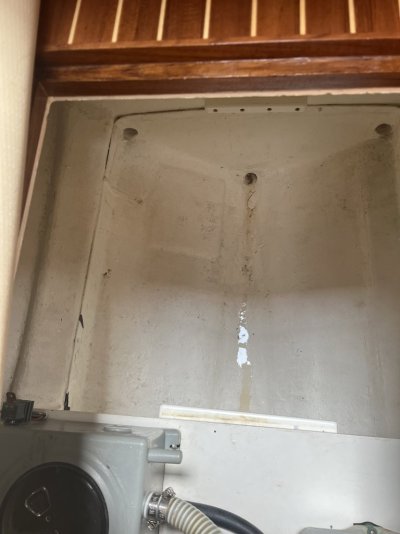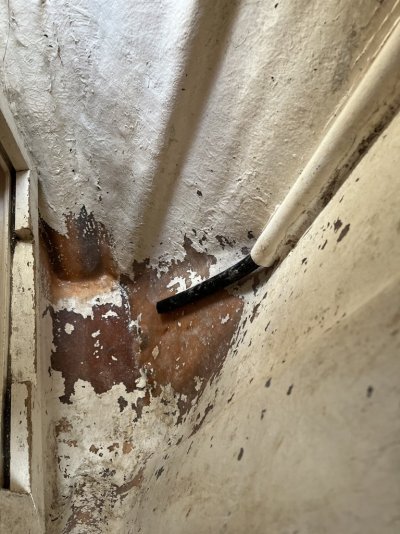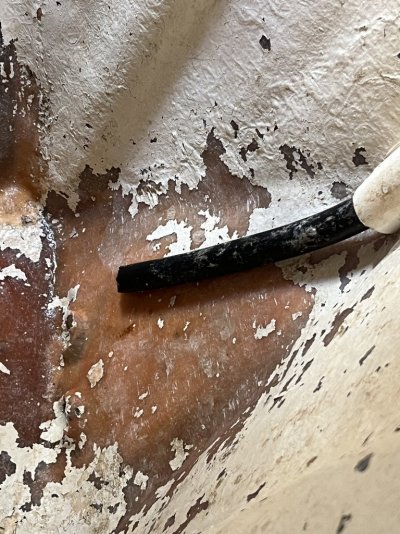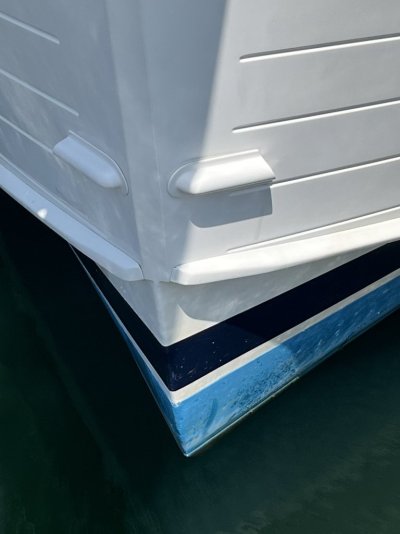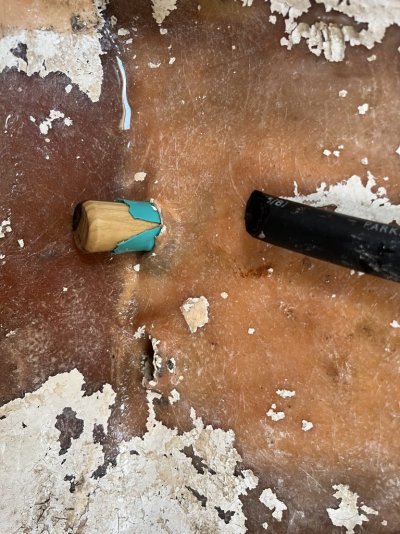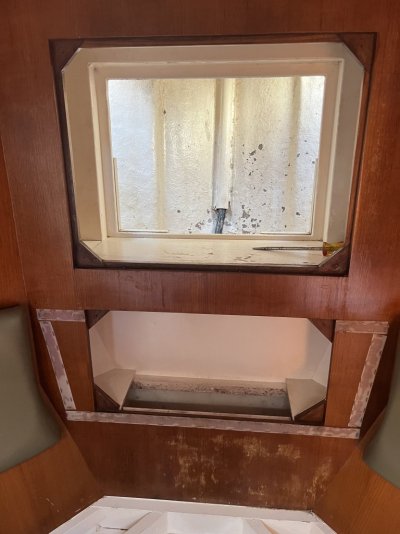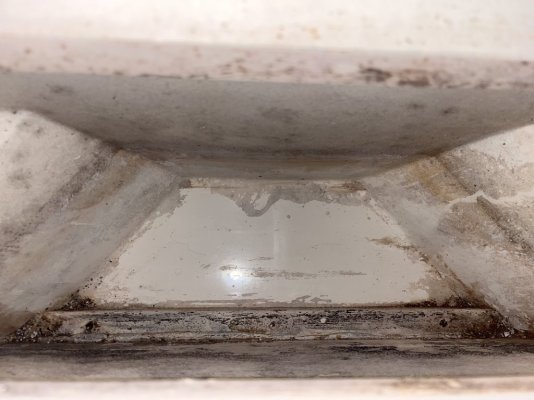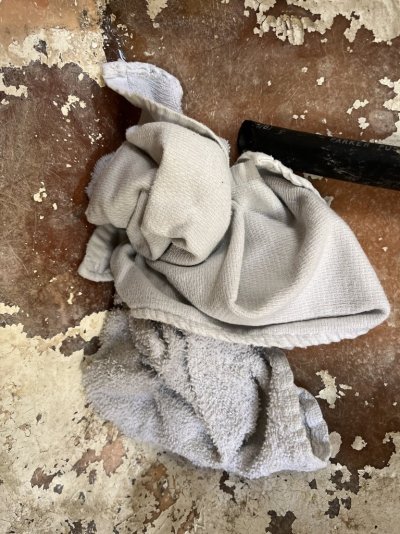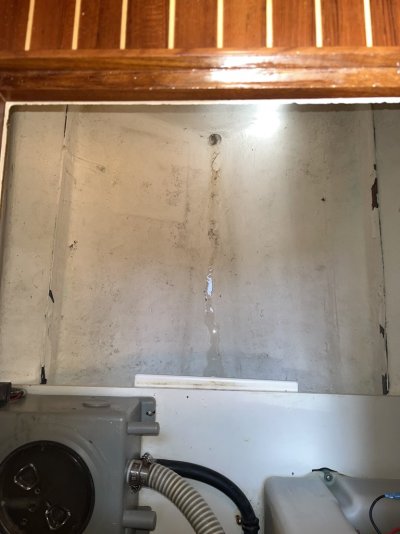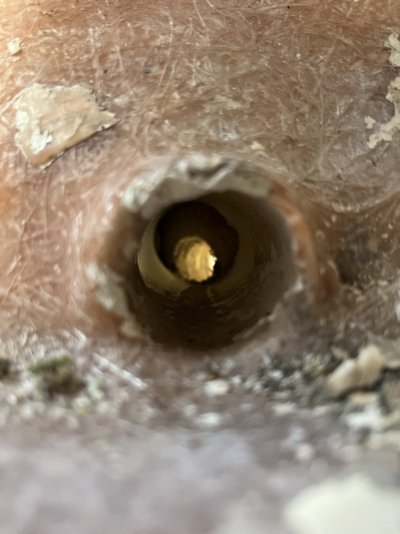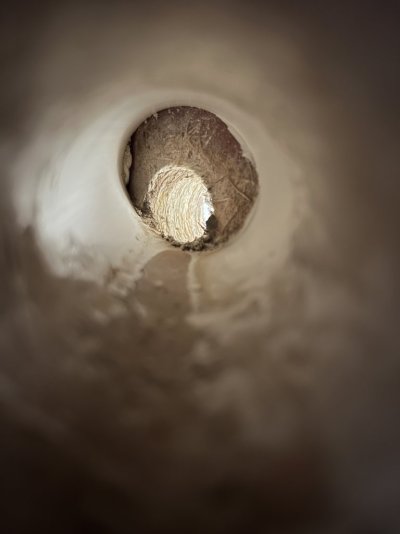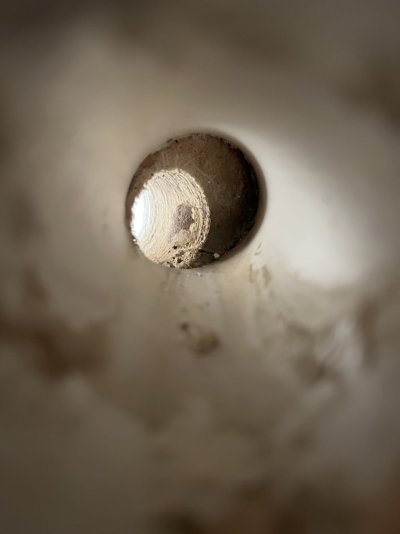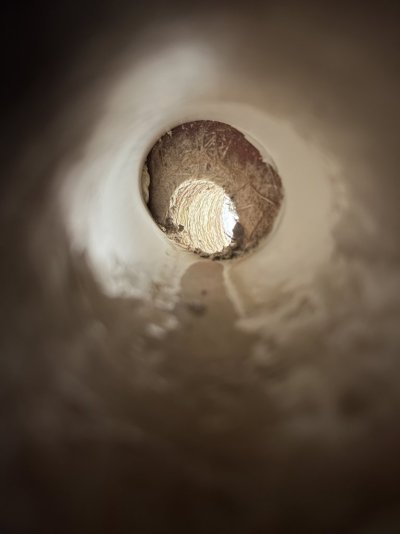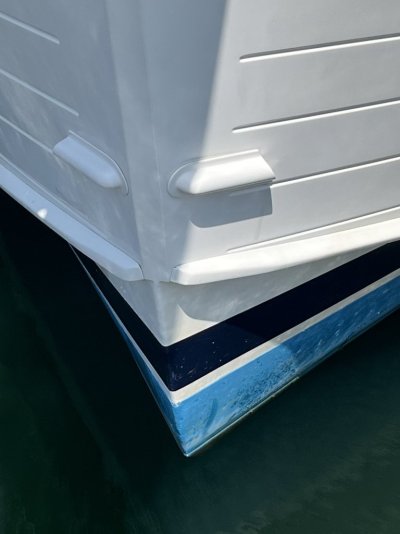kernr
Senior Member
- Joined
- May 29, 2020
- Messages
- 183
- Location
- United States
- Vessel Name
- Serenity
- Vessel Make
- Grand Banks 47 Europa
Hi all -
Today was anchor locker day. Moved boat up in slip and placed anchor and all of the chain on the dock. Took all of the access hatches off the topside and inside boat to the anchor locker. Cleaned out debris/ dirt/ mud out of locker and examined base and sides of locker - no cracks or holes observed and two holes in bottom drain overboard. Forward bilge still dry after one week dockside. Then I took hose and gave a good wash out of locker. Guess what - water, a trickle as seen in photo, started into forward bilge. So that is definitely one source of sw when underway. Either there is a hairline crack in locker bottom or the port/stbd drain hose to overboard is cracked or not attached to opening at top of hose (which is right where it exits bottom of locker). It could be either hose actually - can’t tell - no access to that area.
I may try to plug the port side and/or stbd side to see if leak persists. If it’s just the bottom of locker then epoxy should solve that problem. If exit hose from locker not sure of a good fix - possibly a smaller hose inside existing hose with epoxied flange to bottom of locker. Ideas?
Bob
PS - At least I have located one sw source - possibly only one
Today was anchor locker day. Moved boat up in slip and placed anchor and all of the chain on the dock. Took all of the access hatches off the topside and inside boat to the anchor locker. Cleaned out debris/ dirt/ mud out of locker and examined base and sides of locker - no cracks or holes observed and two holes in bottom drain overboard. Forward bilge still dry after one week dockside. Then I took hose and gave a good wash out of locker. Guess what - water, a trickle as seen in photo, started into forward bilge. So that is definitely one source of sw when underway. Either there is a hairline crack in locker bottom or the port/stbd drain hose to overboard is cracked or not attached to opening at top of hose (which is right where it exits bottom of locker). It could be either hose actually - can’t tell - no access to that area.
I may try to plug the port side and/or stbd side to see if leak persists. If it’s just the bottom of locker then epoxy should solve that problem. If exit hose from locker not sure of a good fix - possibly a smaller hose inside existing hose with epoxied flange to bottom of locker. Ideas?
Bob
PS - At least I have located one sw source - possibly only one

